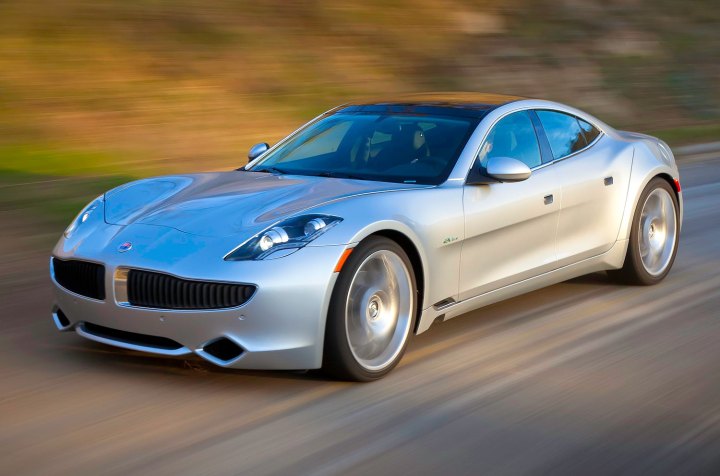
Fisker Automotive changed its name to Karma Automotive, and now it’s looking to restart production of its sole model, which will be renamed Revero. As part of that plan, Karma wants to set up shop in the backyard of the Big Three U.S. automakers. It wants to open an engineering and sales office in Troy, Michigan, not far from Detroit, according to Automotive News (subscription required).
Karma expects to invest $3.6 million and create 150 jobs. The project is backed by a $450,000 performance-based grant from the Michigan Business Development Program, and the city of Troy will help with marketing and promotion.
Read more: Google to set up self-driving car R&D center in Detroit
The Michigan outpost will be developed alongside a new factory in Moreno Valley, California, not far from Karma’s headquarters. Karma predecessor Fisker had cars built under contract by Valmet Automotive in Finland, but Karma plans to do things itself. The company also owns a mothballed ex-General Motors plant in Delaware, the fate of which is unclear.
The Revero is expected to appear later this year, and will probably maintain most of the styling of the Fisker Karma. It will also continue to use an extended-range electric powertrain, with a small gasoline engine as a generator. However, many individual components will likely be changed in order to update the car, which was last built in 2012, and address issues that cropped up during the previous production run.
While Silicon Valley is becoming more influential, it seems Detroit is still an important place to be, even for newcomers. California-based Faraday Future recently applied for permission to test self-driving cars in Michigan, and Google is setting up a research center there to be closer to Fiat Chrysler Automobiles (FCA), which is partnering with the tech giant on autonomous cars.
Editors' Recommendations
- You’ll soon be able to watch YouTube videos in your Android Automotive car
- God of War: Ragnarok trailer sets up war against the gods
- Autonomous vehicles set to get their own special roads in Michigan
- Amazon speeds up automotive offensive with offline Alexa, Fire TV for cars
- GoPro’s defunct Karma drone has suddenly stopped working, owners claim


